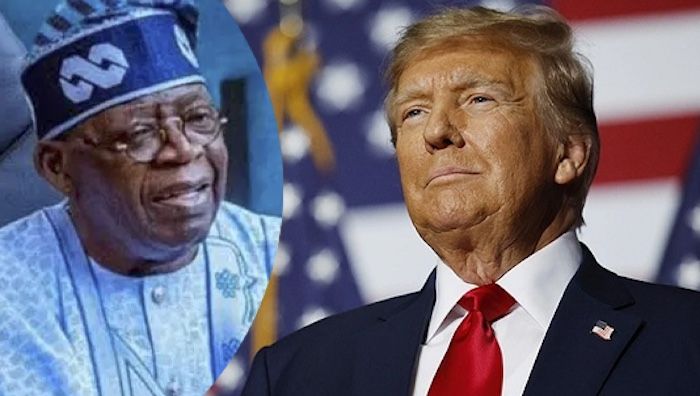The United States House Subcommittee on Africa will hold an open hearing on Thursday, November 20, 2025, to assess President Donald Trump’s decision to redesignate Nigeria as a Country of Particular Concern (CPC) over alleged religious freedom violations.
If approved by the Senate, the CPC listing could trigger sanctions against Nigerian officials accused of tolerating religious persecution, restrict some forms of American assistance, and serve as a warning signal to the global community about rising threats to religious freedom in the country.
The hearing, which begins at 11:00 a.m. in Room 2172 of the Rayburn House Office Building and will be streamed live, will be chaired by Rep. Chris Smith (R-NJ). It will feature two panels: senior US State Department officials and prominent religious leaders.
An invitation to members of the House Foreign Affairs Committee confirms that Jonathan Pratt, Senior Bureau Official for African Affairs, and Jacob McGee, Deputy Assistant Secretary in the Bureau of Democracy, Human Rights and Labor, will testify. A second panel will include Nina Shea of the Centre for Religious Freedom, Bishop Wilfred Anagbe of the Makurdi Catholic Diocese, and Oge Onubogu of the Centre for Strategic & International Studies, PUNCH reports.
The session will examine the scale of religiously motivated violence in Nigeria and explore possible US actions, including sanctions, aid restrictions, and deeper cooperation with Abuja. Trump’s October 31 redesignation has rekindled debate in Washington about attacks on Christian communities and whether the US should adopt stronger measures.
Defending the move, Trump accused Nigeria of “severe violations” of religious freedom, insisting Christian communities faced an existential threat. He warned that the US was prepared to act if the Nigerian government failed to halt the killings.
“If the Nigerian Government continues to allow the killing of Christians, the USA will immediately stop all aid and assistance to Nigeria, and may very well go into that now-disgraced country, ‘guns-a-blazing,’ to completely wipe out the Islamic terrorists who are committing these horrible atrocities,” he said on November 1, 2025.
“I am hereby instructing our Department of War to prepare for possible action. If we attack, it will be fast, vicious, and sweet, just like the terrorist thugs attack our cherished Christians.”
Tinubu rejects Trump’s claim
President Bola Tinubu rejected Trump’s claims, describing them as a distortion of Nigeria’s religious environment. He maintained that Nigeria remains committed to religious liberty.
“Nigeria stands firmly as a democracy governed by constitutional guarantees of religious liberty. The characterisation of Nigeria as religiously intolerant does not reflect our national reality,” Tinubu said on X.
“Religious freedom and tolerance have been a core tenet of our collective identity and shall always remain so. Nigeria opposes religious persecution and does not encourage it.”
Nigeria’s redesignation also comes at a time of intensified attacks on Christian communities, including raids by extremist groups, kidnappings, and the destruction of churches. A bill to formalise the CPC status is presently before the US Senate, sponsored by Senator Ted Cruz. Nigeria previously appeared on the list in 2020 under Trump but was removed by President Joe Biden.
US Congressman Riley Moore said in an interview with Fox News that lawmakers had already launched enquiries into the CPC situation, noting that evidence gathered so far points to severe persecution of Christians.
“What is going on in the country is horrific – these killings of brothers and sisters in Christ, but we… we’re going to stop this,” he said.
Responding to Tinubu’s rebuttal, Moore insisted the Nigerian president’s comments do not match the reality on the ground. “Unfortunately, that is completely false. I mean, there are states in Nigeria that have blasphemy laws, people who are facing the death penalty right now for blasphemy against Islam,” he said.
“There’s a person right now who is held in prison for defending himself from an attack by a Muslim militant from the Fulani tribe. He defended himself, and he’s facing the death penalty. So, there is a serious persecution happening in Nigeria.”
Moore claimed that available data shows Christians suffer disproportionately, saying, “It is five (Christians) to one Muslim who is being killed in Nigeria.”
He argued that the United States has a role to play despite Nigeria being a sovereign nation. “I think we absolutely do. We are a Christian nation and a nation that believes in the values and virtues of standing up for people who are being persecuted,” he said.
He added that the CPC designation “unlocks… different levels the President can use against that country,” including sanctions, aid restrictions, and limits on financial assistance, adding that Trump “has put all options on the table, including military kinetic action.”
Pope expresses concern
Meanwhile, Pope Leo XIV expressed concern over rising violence against Christians worldwide. His remarks came barely two weeks after Trump threatened military intervention in Nigeria.
“In various parts of the world, Christians suffer discrimination and persecution. I think especially of Bangladesh, Nigeria, Mozambique, Sudan, and other countries from which we frequently hear of attacks on communities and places of worship,” the Pope said on X.
He also prayed for victims of a recent massacre in Kivu, Democratic Republic of Congo, urging an end to violence and unity among believers.



